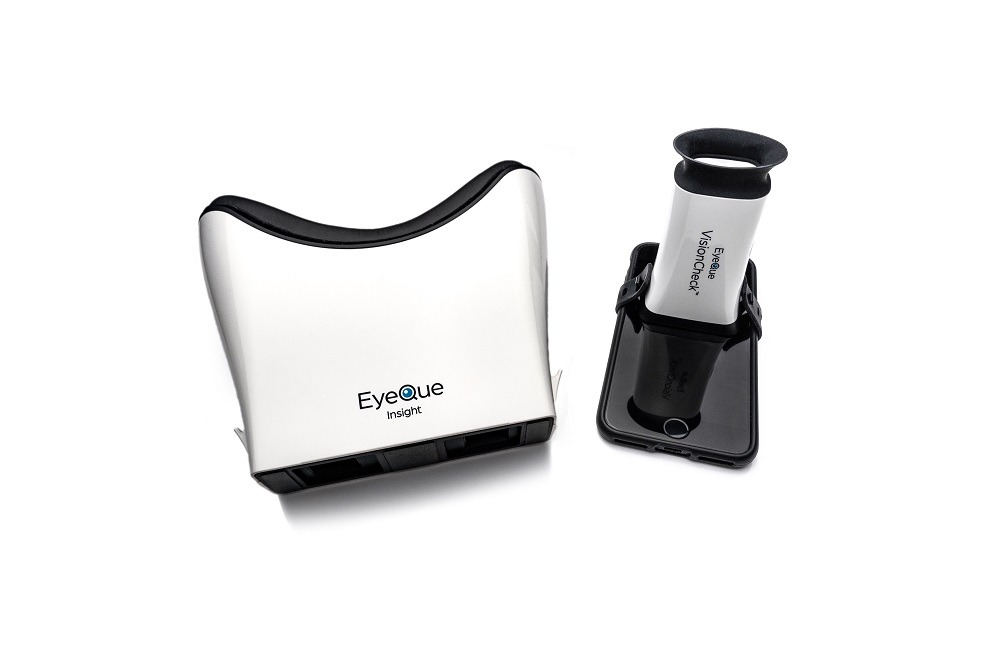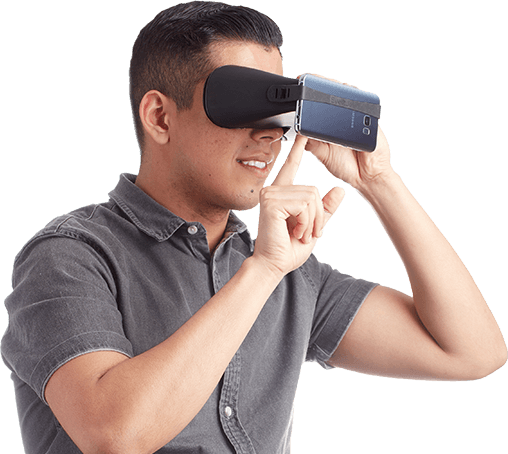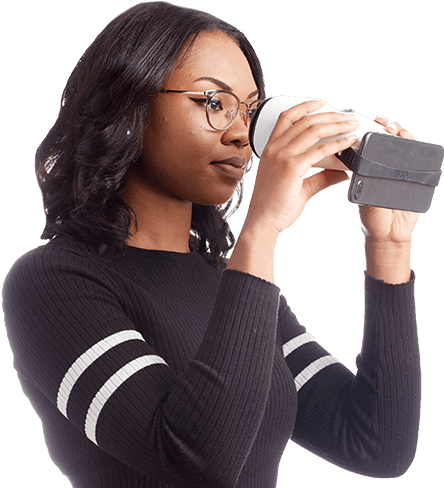
EyeQue’s VisionCheck and Insight devices let people use their smartphones as part of an at home vision testing so that they can track their vision and order glasses online.”
California-based vision test company EyeQue claims its VisionCheck is the world’s first automated optical device built for consumers that measures and tracks refractive error, such as nearsightedness, farsightedness and astigmatism, allowing users to order glasses from home with the results.
Astigmatism is a common type of refractive error caused by the irregularities in the shape of a person’s cornea, resulting in the eye failing to focus the light equally on the retina, leading to blurred or distorted vision.
Dr. John Serri, co-founder and COO of EyeQue, said: “We’re committed to bringing affordable, accurate, easy-to-use vision health trackers to market such that anyone, anywhere can take an active role in their own vision care.
“Leveraging Bluetooth technology, improved optics, a precision motor for automatic lens rotation to measure astigmatism, and an enhanced user-testing interface the product is now even more accessible and easier to use than its predecessor while remaining highly affordable.”

How does the EyeQue Insight work as an at home vision test?
For their insight device, EyeQue teams up with eye doctors to address the global myopia epidemic (the most common cause of impaired vision in people under 40) – predicted to affect 50% of the entire world’s population by 2050.
It is a software-based platform that allows new tests, features and improvements to be made suitable for both children and adults, retailing at $90 (£70).
Insight currently includes three tests – visual acuity test, contrast sensitivity test, colour vision test, along with additional tests in development.
Gloria Consola, marketing strategist at EyeQue, said: “The visual acuity test measures clarity of distance vision, screening from 20/20 to 20/400 in about one minute and provides exact measures of single and dual eye performance.
“Insight can also test the accuracy of current glasses or contacts, indicating when an updated prescription is required.”
The contrast sensitivity test measures the wearer’s ability to distinguish between varying levels of light and darkness.
As the ability to detect variations of light helps with depth perception and vision focus in low-light conditions when colours are less perceptible or when objects are similar to the backgrounds.
Ms Consola said: “People who lack contrast sensitivity may have difficulty driving at night, in fog or snow; low contrast sensitivity is an indication of medical conditions such as cataracts, glaucoma or diabetic retinopathy.
“The colour vision test measures the lack of ability to discern variations in colour.
“Colour vision deficiency impacts daily life from non-threatening activities like matching clothing or identifying items by colour to more dangerous situations like accurately determining traffic lights and signals while driving.
“Changes in colour vision can be an indication of a developing health issue.”

What happens with the results?
Ms Consola said: “The mobility, durability and software-based design make the Insight ideal for testing larger groups such as those in schools and at nursing homes.
“Patients save time and money by not having to visit the office while doctors are able to provide better, more convenient, faster and comfortable care.”
The company emphasises that EyeQue isn’t meant as a replacement for optometrists, who also check for problems like glaucoma, macular degeneration and cataracts.






